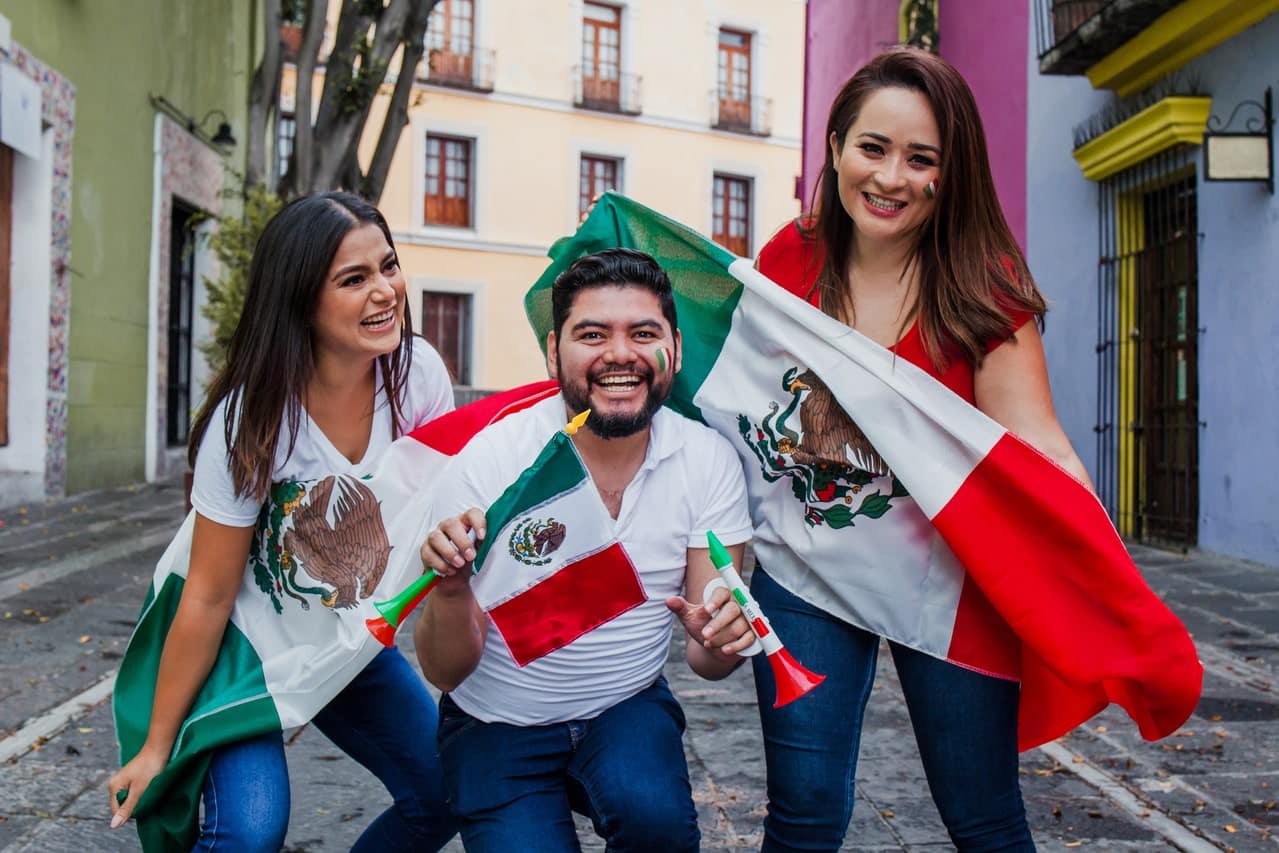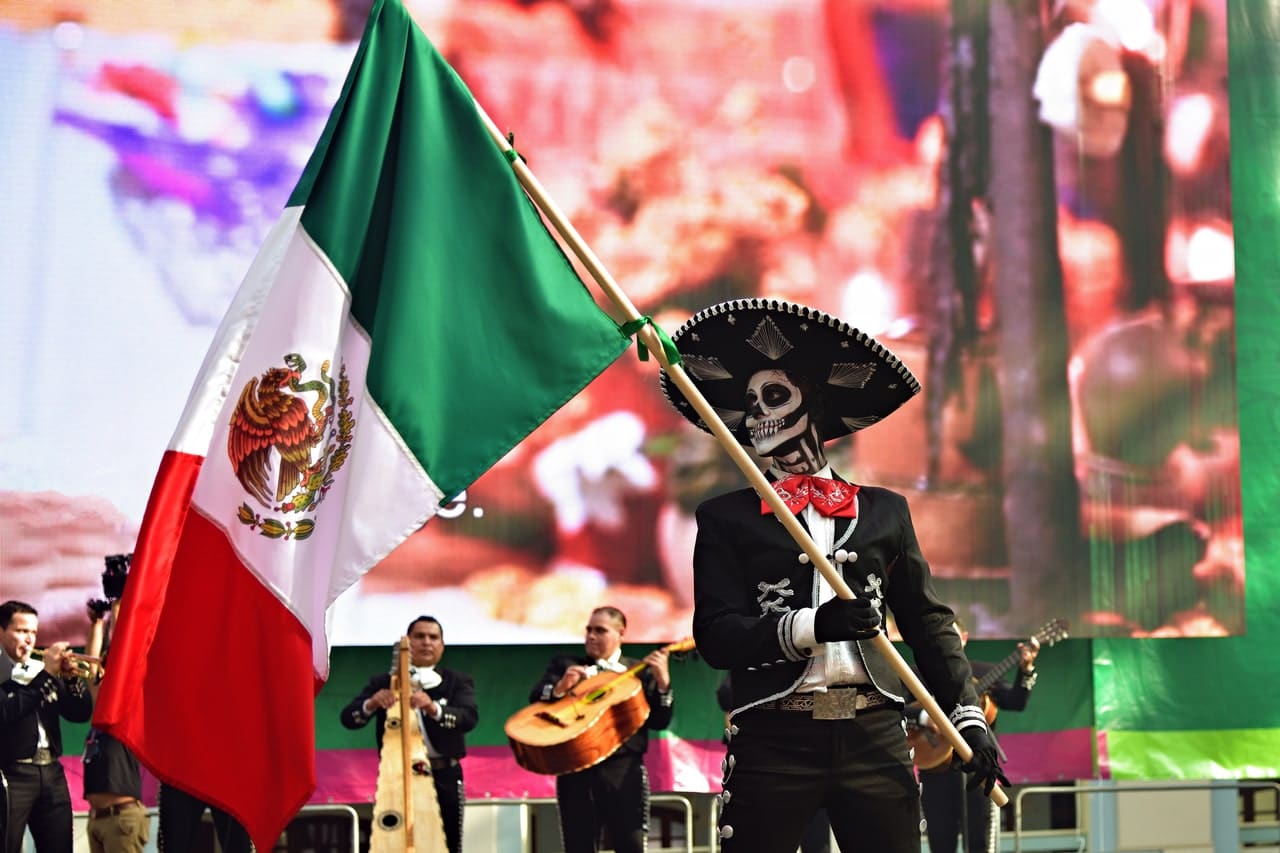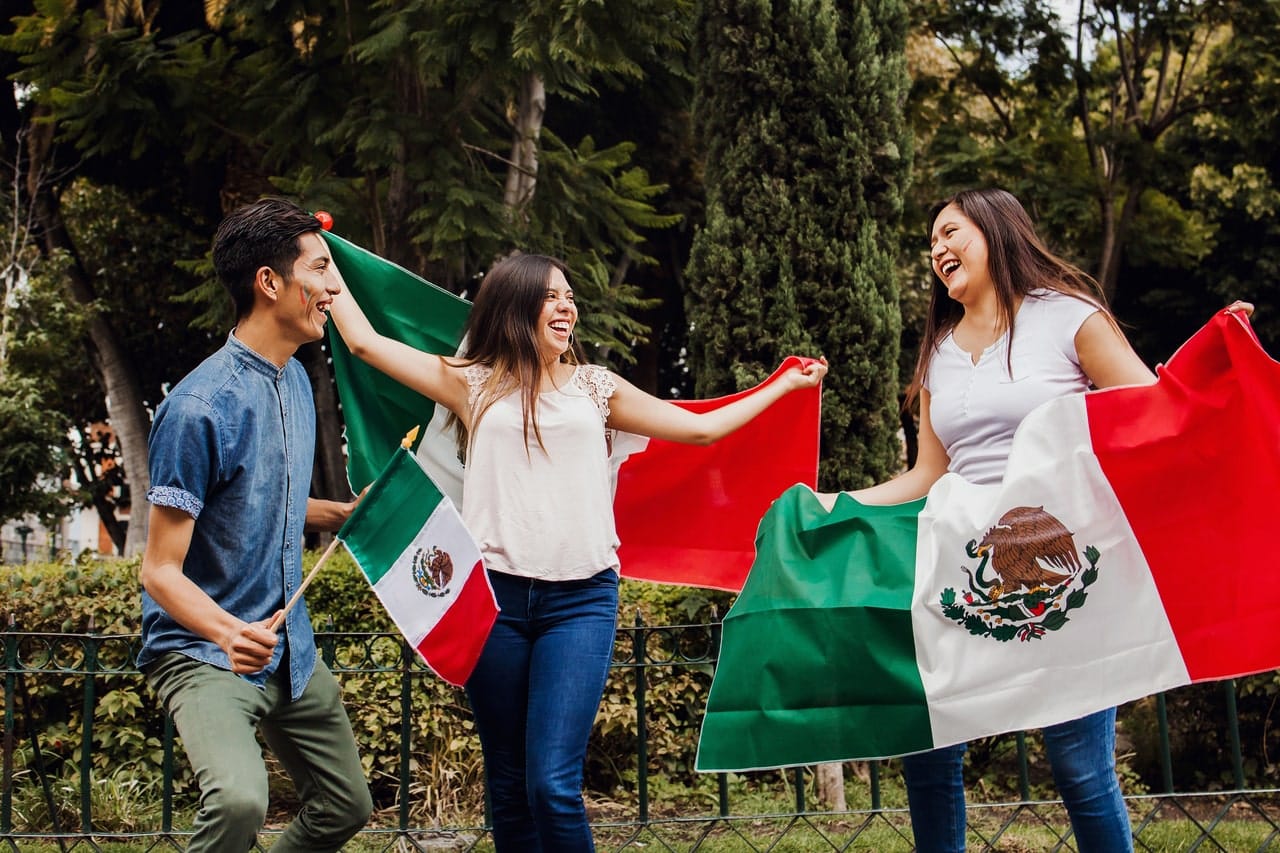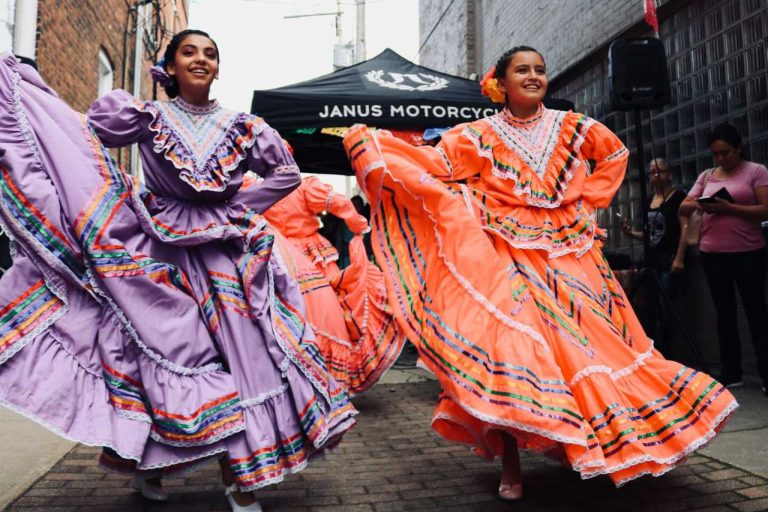
Mexican Slang Words: The Ultimate Guide to Not Embarrass Yourself in Mexico
DATE:
Quit thinking about not being capable of understanding jokes or expressions in Spanish that would kill it in conversations. Translating from one language to the other is never the right answer.
Some would tell you using slang from a different culture doesn’t feel natural and they may be right when it’s down to swearing. However, you have no idea how limited English is in this matter!
By the way, remember most of these Spanish slang words should be used always in an informal context. Let’s start with, by far, the three most important terms when learning Mexican slang. Let’s go!
The most popular Mexican slang words and phrases
La Chingada
One of the most popular Mexican slang terms. Most Spanish-speaking countries are very familiar with it and in the United States, it has become very popular thanks to the influence of the Latino community.
However, if you’re going to start using it, you’ll have to be careful not to convey the wrong message because depending on the context, it will convey different meanings.
In Mexican slang, chingada can refer to something in a deplorable place, state, or condition:
- ¡Vete a la chingada!: go to hell!
- ¡Me lleva la chingada!: I’m screwed!
- Esto está de la chingada: This is not good.
Chingar as a verb in Spanish can also refer to several situations such as being irritating, having heavy work, or having many different things to do.
- ¡Deja de chingar!: Stop bothering!
- Estuve chingándole todo el día: I’ve been working the whole day.
- Tengo un chingo de cosas por hacer: I have a lot to do.
On the other hand, we have chingón, which is used to describe something or someone good or cool.
- Carlos es un chingón en física: Carlos is very good at physics.
- La comida está bien chingona: The food is very good.
Pedo
Even though the translation “fart” works for some scenarios in Spanish, it’s mostly a way to say “drunk”.
- Estoy bien pedo: I’m drunk.
Drink big time? Call it la peda.
- Te vi en la peda de anoche: I saw you at the party last night.
Use it when you need to know if there is a problem or not:
- ¿Cuál es tu pedo?: what’s your problem?
Lastly, you can use the question ¿Qué pedo? In a friendly way for “What’s up?” Or, with an aggressive tone for “What the hell?” It is mostly used as an adjective for an object or someone. It is pretty much used in the same way the word “fucking” is in English.
- Mi pinche coche se dañó otra vez: My fucking car broke again.
- Ese pinche perro me hace reír: That fucking dog makes me laugh.
These Mexican slang words have become so popular that they’re being adopted by other countries in Latin America into their everyday language. If you want to sound like a local, pinche is the most Mexican you can get.

Everyday Expressions in Mexican Spanish
Mexico City is known for its movie dubbing for the Latin American market. Some of those are done with standard Spanish but some others are not. Therefore, many of the terms in Mexican Spanish slang are understood in other Spanish-speaking countries. However, the following phrases are not used as much as they are used in Mexico.
¿Mande?
Use it on the phone only in Mexico to let the other person know you’re listening to them. It’s like giving them a “talk to me”. On the other hand, it is frequently used in regular conversations when you need to know what someone said but you didn’t understand. You’d be asking “What?”.
¡Aguas!
Another slang term for which the literal translation won’t work. In this case, we have “waters”. ¡Aguas! is a warning like “careful” or “watch out”. You’ll most likely hear this expression when danger is near.
- ¡Aguas! Ahí viene mi mamá: Careful! Mom’s coming.
The one who’s watching out to warn the rest is echando aguas.
¿Qué onda?
Ever wondered how to say “what’s up” in Mexican slang? Here are some examples:
- ¿Qué tal?
- ¿Qué pasó?
- ¿Qué onda?
- ¿Qué pedo?
Each of the above works perfectly to ask someone about the current situation or state. The first three are for people you don’t know well. The last expression should be used with close friends.
Buenas Ondas
There are two words for wave in Spanish. The ones in the ocean are “olas” and the rest are “ondas”. Teenagers will use “olas” on the Internet to say “hello” instead of “hola” because it is cooler.
Use it to describe someone cool! So, a nice person is buena onda.
We can also label a situation as good or bad. Let’s say you found money on the street, you can say ¡Qué buena onda! in Mexican Spanish. On the contrary, if the situation is not favorable, you can say ¡Qué mala onda!
Think about good vibes or bad vibes when using this word and you’ll master this slang term.
Chido/Padre
Pretty common in Mexican Spanish and it’s used to describe something cool. It could vary depending on gender and number but it means “cool”. Don’t use chido to describe someone, locals prefer to use buena/mala onda for that.
- ¡Que chidos tus juegos!: You have cool games!
- ¡Esas sillas están muy chidas!: Those chairs look really nice!
Even when we learn that “father” is “padre” in Spanish. Mexican slang uses it as a synonym for chido, too. The only difference is that it doesn’t change depending on the gender:
- ¡Qué padre está tu coche!: What a nice car you have!
- Está muy padre tu casa, tengo que venir más: Your house is nice, I gotta come by more.
Cabrón
A Mexican slang word for which The literal translation is “big male goat” but it is nothing like that in Spanish. Depending on the context and the person you’re dealing with, this expression can be rude or friendly. Here are some examples:
- No te quiero ver por aquí cabrón: I don’t want to see you here fucker.
- ¡Ah, cabrón!: Oh, wow!
- Juan es bien cabrón bailando: Juan is fucking good at dancing.
Now, cabrón is also commonly used to express that a situation is particularly hard with Está cabrón. Then, it could describe something or someone.
Güey
You can’t miss this one considering its importance in Spanish. If this list had a specific order, güey would take the first place. People from Latin America know this word very well and, even though they exaggerate when using it, they understand its meaning in Mexico as it looks simple.
Do not confuse it with güero which is blond only in Mexico, too. Güey or wey (as you can also see it written) means “mate”, “dude” or “man”.
- No sé güey, está cabrón: I don’t know man, it’s hard.
- ¿Qué hay, wey?: What’s up, mate?
Young people have this word as a filler in most cases and it isn’t a curse word unless you’re angry. By the way, it doesn’t change if you talk to a girl!
Neta
Another piece of Mexican slang with several interpretations that you’ll love. It means the truth but… Are you talking about how good something is?
- Mi moto es la neta: My bike is the best.
Do you want to be dead serious about a statement?
- La neta wey, vi un fantasma: I’m dead serious dude, I saw a ghost.
Are you looking for Mexican slang words meaning “really” or “for real”?
- La neta, ¿No le dijiste?: You didn’t tell her? Really?
- ¿Neta wey?: Are you for real?
¿A poco?
Widely used among the locals when feeling doubtful about a situation just like “neta”. But, it is equivalent to “shut up” in English when responding to another sentence.
- ¡Gané la lotería!: I won the lottery!
- ¿A poco?: shut up!
¡No manches! or ¡No mames!
More replies in Spanish for those moments in which you’re surprised. Now, it’d be good to know that, even when these express the same feeling, ¡No manches! is not vulgar but ¡No mames! is. No mames means “don’t suck”.
- ¡No manches cabrón!, ¿otra vez?: No way dude, again?
- Que se dañó mi compu, ¡No mames!: My computer broke, come on!
¡Órale!/¡Híjole!
A pretty fun exclamation in Mexican slang that describes amazing situations or just encourages people to do something.
- ¡Órale! Tú hermana es muy bonita: Wow! Your sister is very pretty.
- Órale, vamos que llegamos tarde: Let’s go, we’re going to be late.
Along with órale for amazement, a Mexican will use híjole, too. However, the second one is used when they don’t want to use a bad word or a religious-related word.
- ¡Híjole! Se cayó mi torta de cumple: Man! My birthday cake fell.
- ¡Híjole! ¡Perdí de nuevo!: Gosh! I lost again!
Bronca
In Mexico, if there isn’t a bronca then you don’t have to worry. Similar to pedo, it means problem but it isn’t as vulgar or rude. So, don’t mind what others would think.
- Si llegamos temprano, no hay bronca: If we’re on time, there is no problem.
Ahorita
This particular word has a wide and confusing meaning throughout Latin America because it doesn’t have a fixed time frame (beat that, English!). This Spanish word could mean now, soon, or eventually and mothers don’t like it when children respond to them with this word regarding household chores. In Mexican slang, the word is no different and, even though people can tell you it means “right now”, it isn’t usually true.
- ¡Deja de jugar y ponte a estudiar!: Stop playing and start studying!
- ¡Ahorita ma!: Soon mom!
From my personal experience in Latin America, the kid will wait for more menacing instruction.
Luego Luego
Contrary to ahorita, locals do employ this one to talk about the very near future. Luego alone means “later” or “after that” but when you double it, you get immediateness. The expression is also mostly heard in Mexico.
- Luego luego de la farmacia, verás la panadería: right after the pharmacy, you’ll see the bakery.
Luego luego can also be used to confirm information:
- ¿Luego luego no venías conmigo?: Weren’t you coming with me?
Chamba
It means work or job.
- No vengas que tengo mucha chamba estos días: Don’t come, I have a lot of work these days.
- Tengo que chambear: I have to work.
DID YOU KNOW…?
A recent trend sweeping across Spanish-speaking countries, particularly on TikTok and other social media platforms, features a catchy AI-generated song titled “Mi primera Chamba” This viral sensation utilizes the distinctive voice of Eladio Carrión, a renowned artist, adding a unique flair that has captivated millions. The meme’s widespread popularity highlights the growing influence of AI in music and entertainment, and its ability to resonate across diverse audiences.
Mexican Spanish Slang Words for people
Aside from the slang phrases we already have to talk about someone in Spanish, some others are used for a more specific description. The usage of such Mexican slang words will most likely depend on age or intellectual status.

Chavo/Chava
Mexicans in general would use Chavo to talk about kids and teenagers. So, it doesn’t have a bad connotation.
- Ella es la chava que me gusta: She is the girl I like.
Chamaco/Chamaca
Even though it’s also for kids (but not teenagers), it could sound good or bad depending on if they’re either acting well or misbehaving.
- ¡Oye, chamaco! Ven acá: Hey, kid! Come here.
- ¡Sáquese de aquí, chamaca!: Get out of here, kid!
Morro/Morra
In Mexico, If you want to indicate that a man is your boyfriend, call him mi morro. If it is a girlfriend, call her mi morra. This is no fancy word at all! If you’re over 20 years old, I wouldn’t recommend using it. Instead, call them mi chavo or mi chava. Confusing, huh?
Escuincle/Escuincla
Escuincle is the word in Mexican Spanish commonly used to refer to a spoiled kid when they are being annoying or unbearable to be around.
- ¡Callen a ese escuincle!: silence that brat!
Ruco/Ruca
Again, only for Mexico. It’s someone of an advanced age unless you want to undermine a middle-aged person’s capacities. Now, when a Ruco loves dating young girls, they call him rabo verde which translates to green tail. In this context, rabo refers to girls’ butts and verde (green) as something that is not ripe. Hence, this person is known for pursuing girls that are too young.
Naco/Naca
In Mexican slang, naco is a pejorative term for those people considered rude. Nacos usually tend to use lots of bad language and slang going around with some sort of “gangster” attitude. Naco can also be employed as an adjective to talk about things or places related to these people.
- Mira este lugar, ¡Puros sombreros nacos!: Look at this place, the hats are ridiculous!
Fresa
Even though it means strawberry in English, we’re not talking about fruits here but a slang word for someone who is snobbish or picky.
- No seas fresa y cómete los vegetales: don’t be picky and eat your vegetables.
Metiche
Calling someone nosy, someone who meddles in people’s business without being asked, and who runs rumors. These rumors or gossip are called chismes and those telling them are chismosos or metiches.
Jefe/Jefa
In Mexican Spanish slang language, your bosses are your parents because they provide for you and thus they make the rules. Out of respect, your mother is your jefa and your father is your jefe.
Vieja/Viejo
It means old lady, yes, but you just cannot refer to an actual old lady in that way. You can call her Viejita or Abuelita instead. That would sound cute and respectful at the same time. On the other hand, it’s a very common slang word to mention your wife or girlfriend around friends and pals but never in front of them!
- Mi vieja me pelea mucho: My woman complains a lot.
The term works the same way for men, who are a bit less sensitive. Your wife can call you her Viejo even among friends and in your presence. And you can call your friends viejos, too. Not only in Mexico but also like in the United States and perhaps other parts of the world, you can refer to your father as mi viejo.
Mijo/Mija
It’s a common Mexican Spanish term of endearment most parents refer to their kids with. It’s the contraction of the words Mi hija/Mi hijo.
Madre
On its own, the word means “mother” but we already know that language doesn’t work that way. However, when this slang word is accompanied by phrases, it becomes one of the most common Mexican curse words.
- ¡Vale madre, wey, vámonos!: Fuck it, man, let’s go!
- Me vale madres el examen: I don’t give a fuck about the test.
Yes, it changes that much depending on the subject who receives the action. The first one is impersonal yet the second one affects you directly.
- Ni madres: no way.
- ¡Qué poca madre! No me ayudaste: What the hell? You didn’t help me.
It expresses your anger towards a situation or someone’s action.
- ¡Chinga tu madre cabrón!: Fuck off!
It could be a good or a bad thing.
- El reventón fue un desmadre: The party was crazy.
- El examen fue un desmadre: The test was a mess.
Other Mexican Slang words used to call someone
Vato
Used in the north of Mexico to point out a young man.
- Mira a ese vato de la esquina: Look at that guy on the corner.
Cuate
For close friends; those you call brothers because you’ve gone through many different things together.
- Pedro es mi cuate, no lo olvides: Pedro is my mate, don’t forget that.
Carnal
Use it to describe a person, a dear friend you consider part of the family.
No voy solo, que mis carnales me acompañan: I’m not going alone, my buddies come with me.

Practice what you learned
You’re now ready to walk around Mexico City as if you own the place. Enjoy using these slang words and phrases with the locals to sound like them and have a good laugh. Don’t be afraid of making mistakes with Spanish slang as long as you are among friends.
If you don’t have anyone to practice with, we invite you to try a free private class or a 7-day free trial of our group classes and see why thousands of students trust SpanishVIP!











